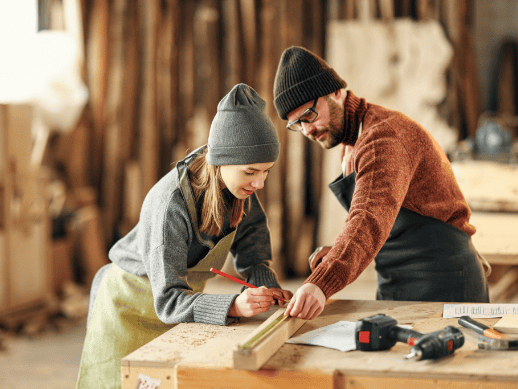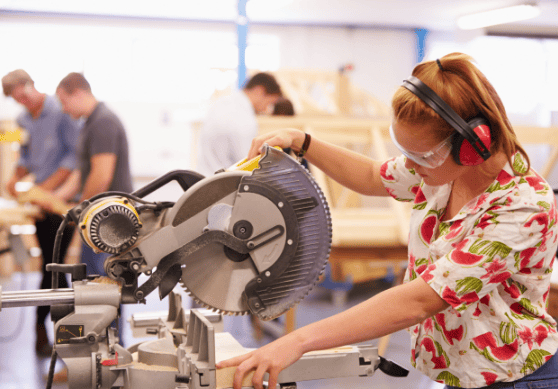Guild of NH Woodworkers
subgroups
We Teach, We Make, We Serve
Our core mission is to teach and encourage all–from aspiring beginners to accomplished professionals–who have an interest in woodworking. The Guild supports a wide range of individual special interest subgroups for like-minded members who all share a passion for a particular specialty of woodworking and/or metalworking. These groups plan their own meetings and other activities, typically meeting three to six (or more) times per year at shops and other facilities around the state.
Join A Subgroup
Joining a subgroup is easy. Just log in to your Member Profile and click on any of the subgroups listed if you’re interested in receiving communication from the subgroup leader. You don’t have to be a member of that subgroup to attend a meeting, as all meetings are open if space is available during the registration process. Upcoming meetings are posted on our website and in our weekly newsletter, TouchUps.
- Fundamentals of Woodworking
- Intermediate Skills
- Luthiers
- Hand Tools
- Woodturners
- Woodcarving
- Metalworking
- Boat Building
- Period Furniture
- Green Woodworking
- New England Association of Woodshop Teachers
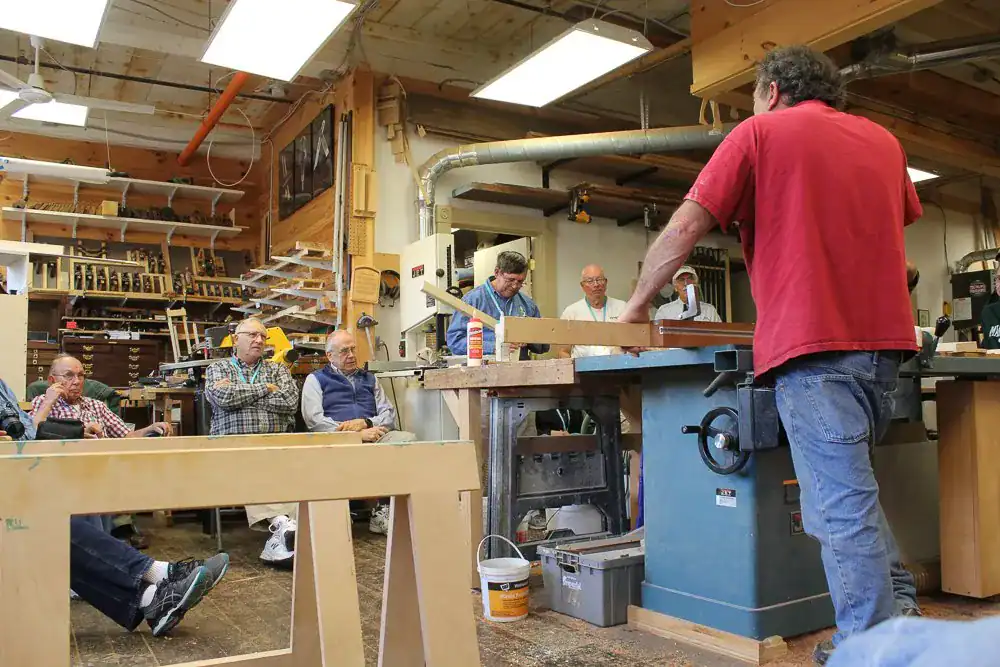
The host/demonstrator of our Fundamentals subgroup is Bob Lacivita, and meetings focus on interesting woodworking topics geared toward beginners as well as those with more advanced skill levels. These include woodworking tool setup, maintenance, and operation and safe use of tools. Additional areas of focus may include functional design, material selection, milling, joinery techniques, and other helpful workshop tips.
Bob Lacivita is a past President, steering committee member, and longtime supporter of the Guild of NH Woodworkers, who brings a broad range of woodworking knowledge, skills and experience. Bob is well known and respected throughout New England for his expertise in architectural history and historical restoration of early American homes.
The Woodworking Fundamentals Group (WFG) meets at Bob’s shop in Nottingham, NH five times a year. Meetings–which are open to members and guests–are held on the first Saturday of even-numbered months beginning in October, from 9:00 AM to noon.
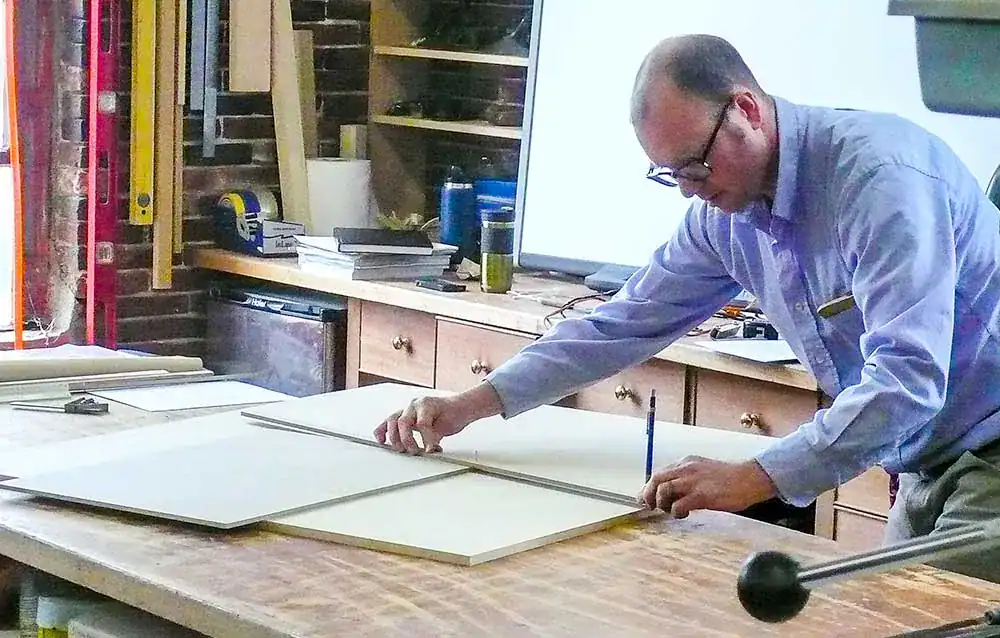
This subgroup has not been active over the past 5 years. We are currently redesigning the group and will update plans in the future.
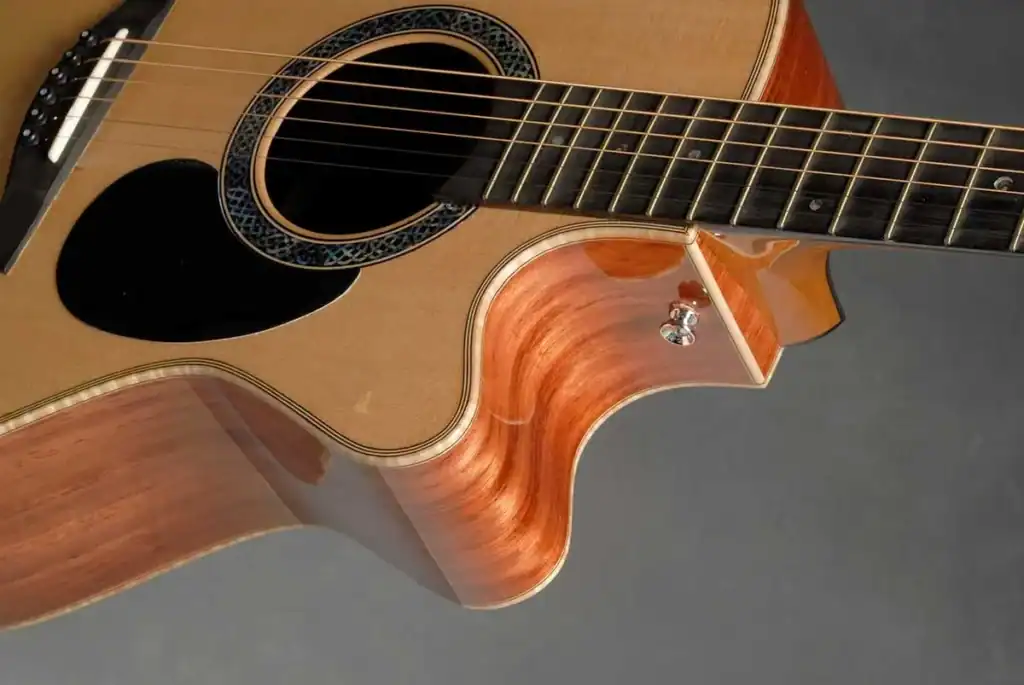
If you are already into lutherie (making stringed instruments), then this group is for you. If you love woodworking but have not tried lutherie, it’s an opportunity to get to know wood at a whole different level. Not only do you have to consider appearance and structure, but sound quality as well.
Stringed instruments stretch woodworking to its limits. The strings exert considerable force on the instrument, yet the more lightly constructed, the better the sound. In fact, it is said that the best sounding guitar is one that is built so lightly that it is just on the verge of collapse. So, lutherie is both a design and a construction challenge.
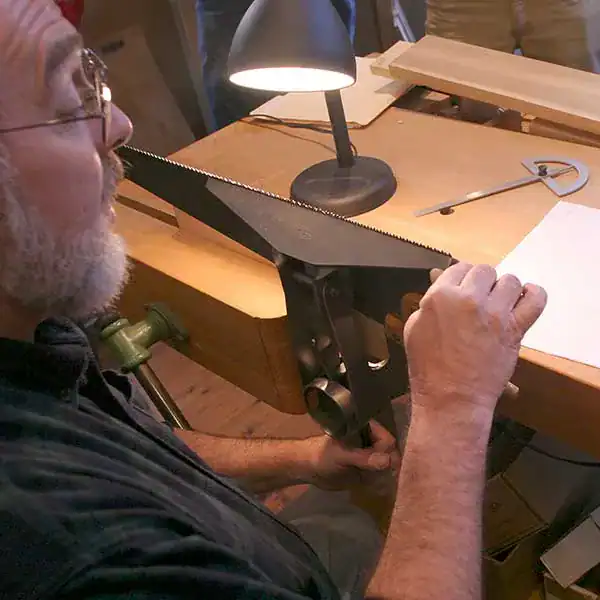
Lou Yelgin leads the Hand Tools subgroup, which is focused on using, making, and restoring human-powered tools such as planes, chisels, saws, axes, and adzes. Although many of us use power tools for roughing out wood, we find that hand tools–developed centuries ago–are often the quickest and best way to accomplish joinery and other woodworking tasks. Indeed, there is a spiritual quality to working with a tool such as a spoke shave compared to a noisy router.
The Hand Tools subgroup meetings occur four times a year and are typically demonstrations that are open to all. Occasionally, the group will visit tool flea markets and museums. All Hand Tool meetings are listed under events.
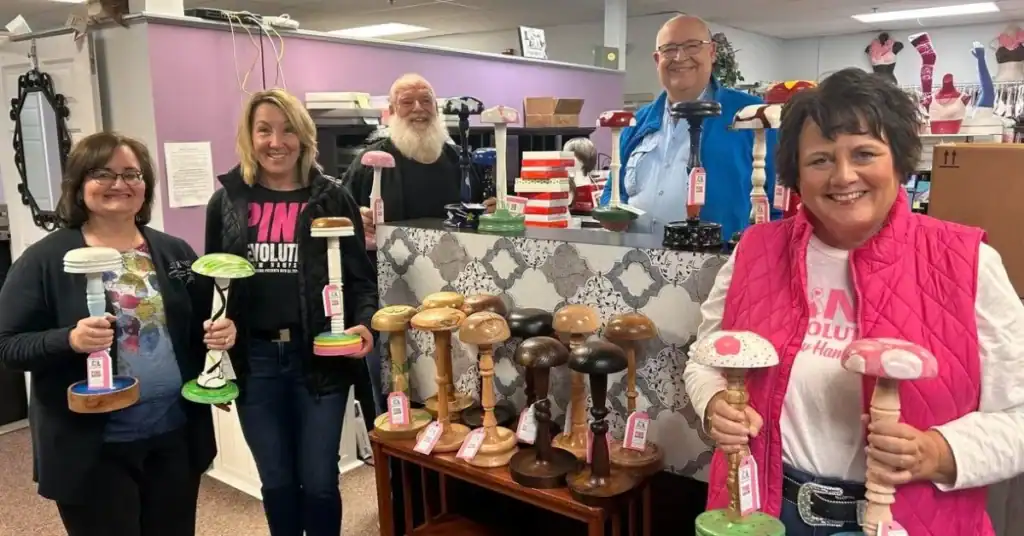
The Granite State Woodturners is both a subgroup of the Guild, and a chapter of the American Association of Woodturners. The group covers all aspects of turning, from the conventional spindle and bowl turning to segmented, ornamental, and other types of turning.
Meetings typically include a presentation or demonstration, and a short business meeting. Once a year there is a design critique, and occasionally other meeting formats are used, like field trips or open shops. GSWT also puts on the New England Turning Symposium every three years.
Meetings are held on the fourth Saturday of odd numbered months, usually from 9am to 1pm, and are open to the Guild membership, AAW membership, and the general public. Locations (mostly in southern NH) and topics are announced ten days before each meeting.
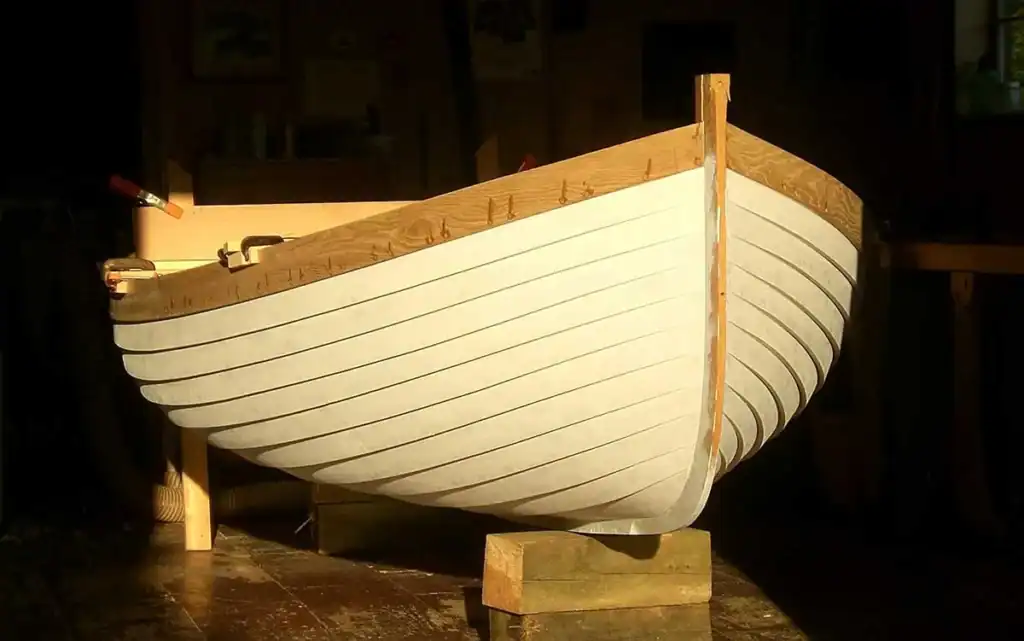
The objective of the Boat Building subgroup is to promote, present, and share information about all things wooden boat!
Meetings cover a wide range of boat building topics and venues, and include visits to boatbuilders, exploring boatbuilding lumber, and building or restoring boats for raffle. Our favorite meetings are the hands-on visits to our members’ workshops to observe, learn about, and assist with their current projects.
New England has been a hub of wooden boat building for centuries–from indigenous watercraft to the grand ships of colonial times to the fishing boats that fueled the economy of our coastal cities in the 19th century. This subgroup honors the rich legacy of boat building heritage here in New England. We learn from each other, share knowledge, and take advantage of the extensive boat building resources available in our area and beyond.
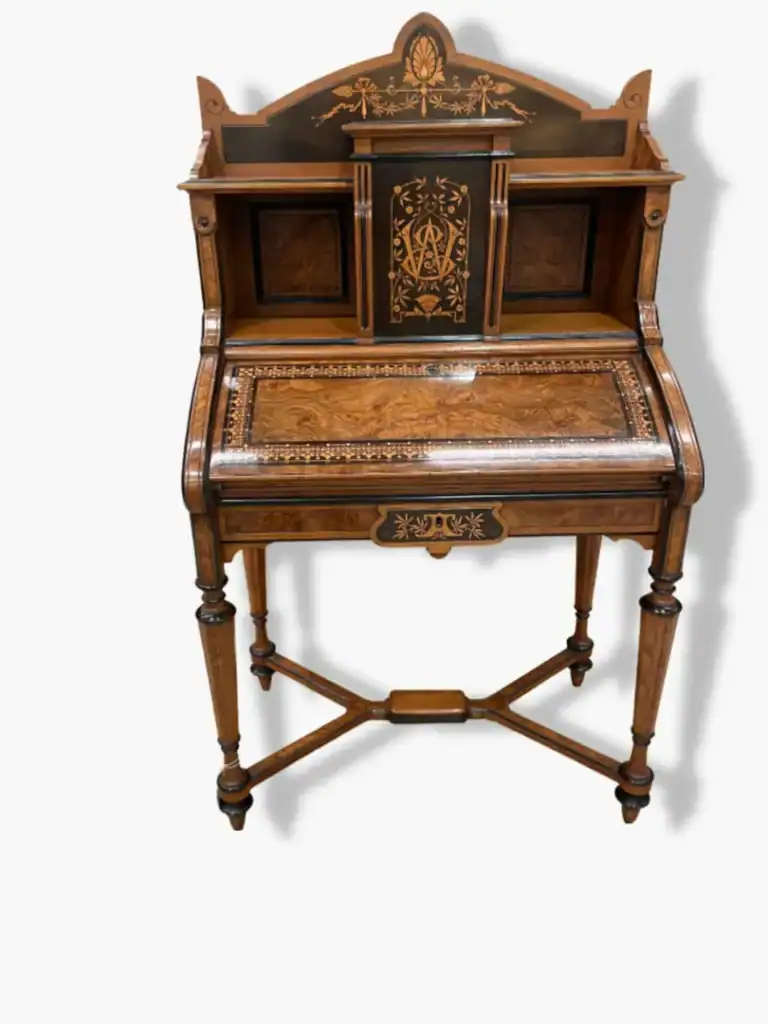
The Period Furniture subgroup is made up of members interested in building furniture in styles that originated before the Industrial Revolution – that is, before 1820. Our meetings consist of three different types of activities:
- Demonstrations by renowned Furniture Masters in our area. These are usually focused on techniques associated with traditional furniture.
- Visits to many of the historic homes in Portsmouth and Newburyport.
- Hands-on shop work, learning and applying Period Furniture techniques, where we build small pieces that can be donated to the Sunapee Fair.
All Guild members are welcome to attend. Meetings typically draw between 12 and 24 people, and those who signed up for the PFG group on their member profile are the first to receive news about upcoming meetings.
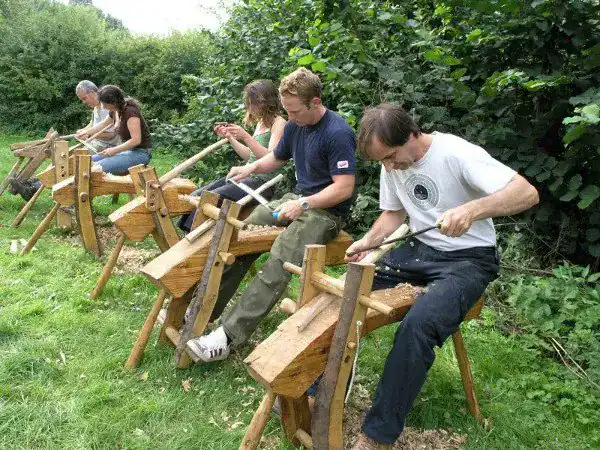
John Skewes leads the Green Woodworking subgroup, a vibrant community dedicated to the art of using freshly cut, unseasoned wood. Green woodworking is a journey of discovery and hands-on experience. It’s about slowing down, appreciating the natural properties of wood, and shaping objects using traditional hand tools. This approach fosters reflection, improvisation, and a deep connection to the craft. Whether you’re a seasoned woodworker or just starting your exploration, you are welcome to join us in this unique and rewarding practice.
Our meetings offer opportunities for learning and growth in a supportive space, and include demonstrations, shop days, and guest speakers. We foster a collaborative environment where experienced members provide mentorship to newcomers. Our shared passion for Green woodworking enables us to connect with fellow enthusiasts, build friendships, and celebrate the joy of working with wood.
Green woodworking encompasses a vast array of techniques and projects, from crafting traditional Appalachian and Windsor chairs to carving spoons, shaping baskets, and creating beautiful bowls. Our subgroup delves into various aspects of green woodworking, including:
- Harvesting and Processing Greenwood
- Chairmaking (Windsor’s, Ladderbacks, Art Chairs)
- Housewares (Spoons, Plates, Cups, Bowls, Baskets, Brooms)
- Spoon Carving
- Seating
- Shave Horses
- Riven Lumber
- Greenwood Turning & Pole Lathes
- Wood Bending
- Tool Sharpening
- Tool Fabrication & Modification
- Understanding Wood
We invite you to get your hands dirty, try new things, and share your knowledge with our welcoming group. While we don’t offer formal classes, we focus on creating opportunities for learning through demonstrations, collaborative projects, and guest presentations. the PFG group on their member profile are the first to receive news about upcoming meetings.
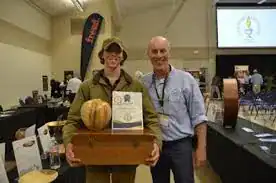
Founded in 2001, NEAWT is a peer-driven organization that meets bi-annually for the purpose of supporting woodworking education in New England. With approximately 130 members, primarily from New Hampshire, NEAWT fosters collaboration, resource sharing, and mentorship in the community of woodworking teachers.
NEAWT and the Guild of New Hampshire Woodworkers have a long-standing supportive relationship, including grants for tools or equipment, and fostering student participation in the GNHW Annual Competition. In 2024, NEAWT voted to become an official Subgroup of the Guild and to strengthen this collaboration through a new program called “Guild in Schools”. This partnership provides easier access to mentorship, equipment support, and grants that GNHW provides to NEAWT members. In turn, NEAWT instructors offer workspace for GNHW events and meetings.
Together, we strengthen our resolve to keep craftsmanship relevant in our schools and communities, and provide hands-on learning opportunities for future generations.
For more information about joining NEAWT, please contact: [email protected]
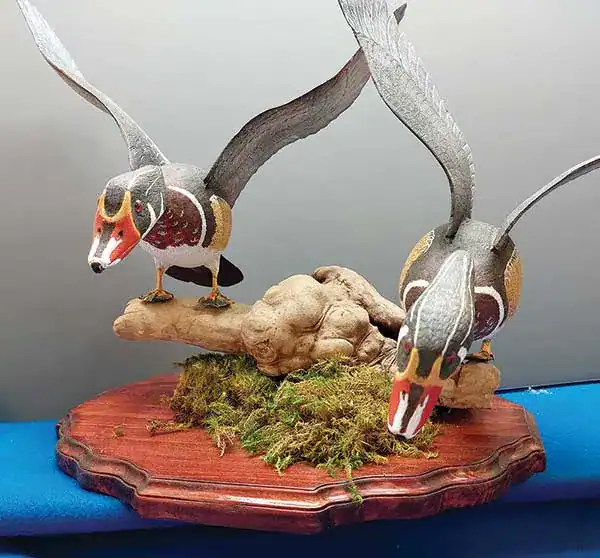
Laurie Farrell leads the Woodcarvers subgroup, which was formerly part of the Hand Tools & Carving subgroup. Woodcarving topics include Relief Carving (furniture, decorative, etc); Carving in the Round (caricature, whimsical); Carving in the Round (animals, birds, etc); Chip Carving; and Sign Carving.
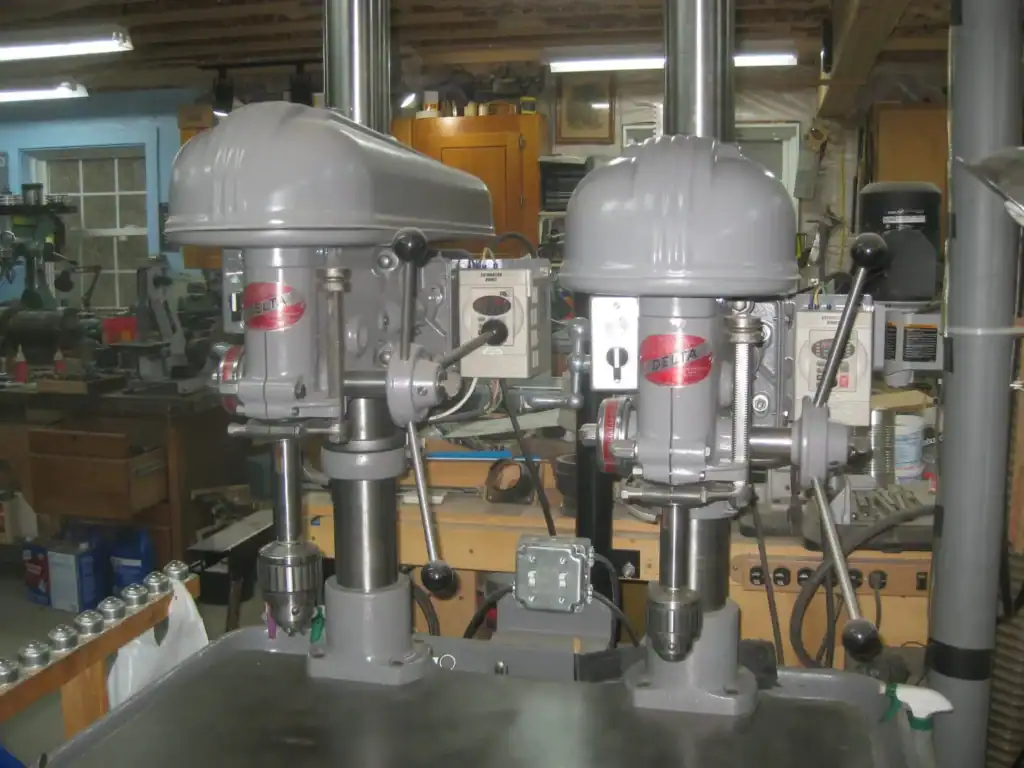
The small meetings that Steve Costain has run on “Metalworking for Woodworkers” have been popular, and metalworking comes into play with some woodworking projects that use a combination of wood and metal. Another area where metalworking is useful is machinery repair and restoration.
We will be setting up a meeting to discuss objectives, times, dates and locations for future meetings.
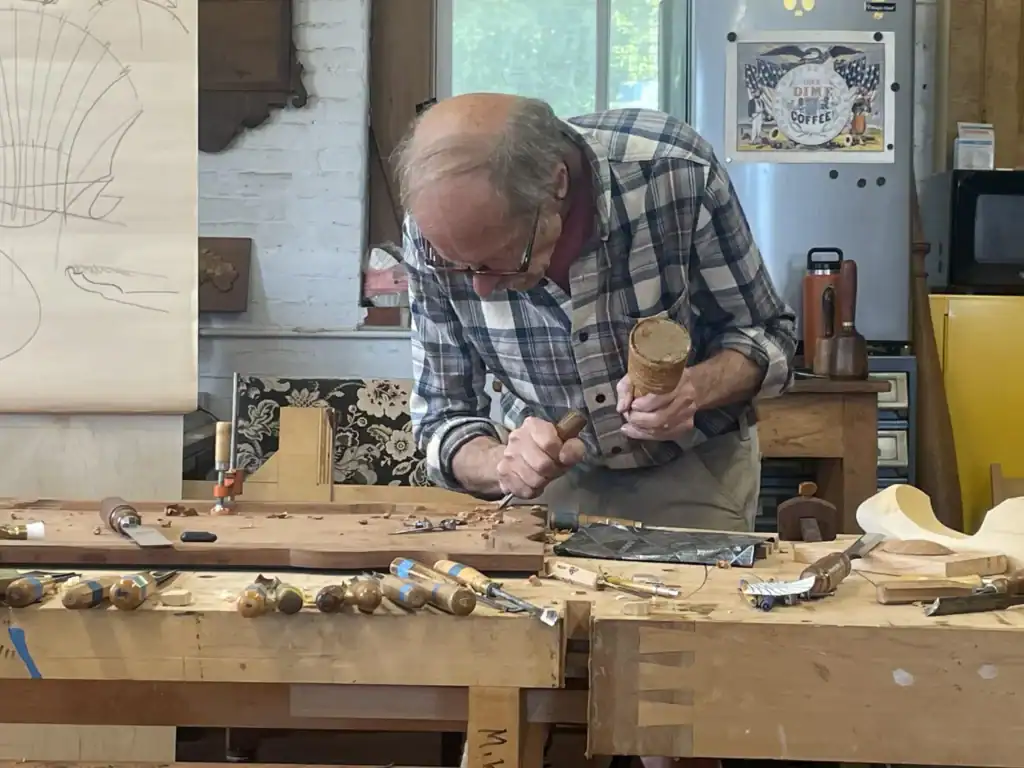
The process of forming a new group is simple. A petition of the Board of Directors will result in recognition and publicity in TouchUps, plus group email and financial support. An organizational meeting date will be set, and the group will elect or appoint a contact person. Group members themselves decide what direction to pursue and how often they will meet. The organizer does not have to be an expert in the area of interest. They only need to take the initiative and be willing to organize.
Not A Member Yet?
We invite you to join the Guild community so you can talk, see, and experience the hands-on joys of woodworking with others!

